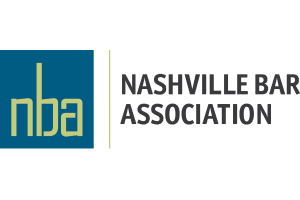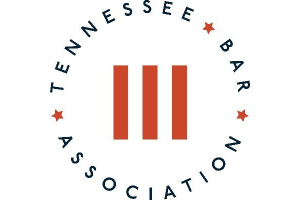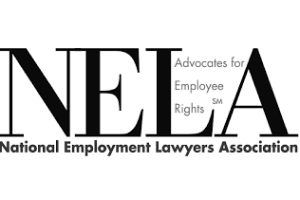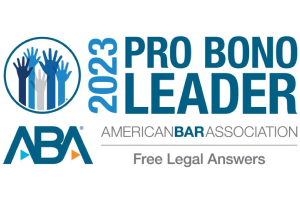for Workers
Pregnancy Discrimination
Our Nashville pregnancy discrimination attorneys fight for workers who have been discriminated against based on their pregnancy, maternity leave, or related conditions.
If you were fired or otherwise treated poorly after your employer learned of your pregnancy, you may be the victim of pregnancy discrimination. Pregnancy discrimination is prohibited by both Tennessee and federal law. Claims may include discrimination, retaliation, sex-based hostile work environment, and failure to accommodate. Employees who suffer pregnancy discrimination can seek monetary and equitable relief, including back pay, front pay, emotional distress damages, punitive damages, and reinstatement.
Unfortunately, pregnancy discrimination is a widespread problem: between 2010 and 2019, the U.S. Equal Employment Opportunity Commission received nearly 35,000 complaints of pregnancy discrimination. The prejudice against pregnant workers is very real and you need a pregnancy discrimination lawyer who can fight for you.
For a free online case review, contact Rickard Masker, PLC at the number above or online.
For more information about your rights as a pregnant employee, be sure to visit our page What Pregnant Workers Should Know about the Pregnant Workers Fairness Act of 2023.
Top 8 Examples of Pregnancy Discrimination
1. Denied a job after a prospective employer finds out you are pregnant
You interview for a position and have the requisite experience and education. You advance to the final round of interviews but then the company learns that you are expecting. The company’s HR representative says that the position requires a lot of standing and that you should focus on your baby and declines to interview you further.
2. Demoted or having your hours reduced after returning from maternity leave
Everything goes smoothly with your pregnancy and maternity leave, but upon your return you find out that your employer has placed another employee in your position and demoted you into a part-time assistant role working only 25 hours per week. Your employer tells you that this will allow you to “focus on your family.”
3. Denied a break period and place to pump breast milk
You return to work after maternity leave and tell your supervisor that you need to take breaks every few hours to pump and ask for a private place to do so. He tells you you’ll have to do it in the bathroom. When you take breaks, he pesters you about missing work time and asks if you really need to do it so often.
4. Removed from your normal position or job duties for “health and safety” reasons without your request or approval
Your employer says they are concerned about your health and safety and that they are placing you on unpaid leave or changing your job duties until after the birth of your child. All determinations of the wellbeing of you and your unborn child are up to you and your physician, not your employer.
5. Fired after your employer learned of your pregnancy
You have a great employment record and have consistently received merit-based pay raises. After learning of your pregnancy, your boss turns a cold shoulder to you and stops taking any interest in you or your work. He does not even provide you with your annual performance review. A few weeks later, you are told that the company “is going in a different direction.”
6. Denied reasonable accommodations for your pregnancy or pregnancy-related medical condition
Your doctor provides a lifting restriction of 25 lbs., but your position requires the need to lift 50 lbs. Your employer rejects your light duty request and tells you to find another job.
7. Being denied medical leave for the birth of a child or related conditions
When you tell your employer about your pregnancy, HR tells you that you are not entitled to medical leave because you haven’t worked for the company for a year yet. They say they can’t hold your spot for you while you’re on leave, but they encourage you to reapply for a job after your baby is born.
8. Harassment in the form of “jokes,” insults, or comments related to your pregnancy
Prejudice from your boss and/or coworkers make your work environment intolerable. You hear “jokes” about your changing body almost every day and you are criticized by your boss for your maternity wardrobe. Such severe or constant harassment may constitute a hostile work environment.
Ready to take action? Contact a Nashville-based pregnancy discrimination lawyer today.
Laws Regarding Pregnancy Discrimination
For many years, women faced pregnancy and maternity discrimination without any recourse. Fortunately, there are now an increasing number of Tennessee and federal laws that protect pregnant workers.
Title VII & the Pregnancy Discrimination Act (PDA)
Title VII of the Civil Rights Act of 1964 is the most important federal anti-discrimination law for employees. It prohibits discrimination based on sex. The PDA was passed by Congress to clarify that Title VII also prohibits discrimination based on pregnancy (as a form of “sex” discrimination). As such, Title VII prohibits pregnancy discrimination that may arise in the workplace as related to hiring, firing, assignments, promotions, and benefits. In this way, Title VII requires pregnant and non-pregnant employees, who are similar in their ability (or inability) to work, be treated equally. Title VII covers employers who have at least 15 employees.
Family and Medical Leave Act (FMLA)
The FMLA guarantees an employee who has been with an employer, which has 50 or more employees within 75 miles of the employee’s worksite, for a minimum of one year up to 12 weeks of unpaid, job-protected leave to recover from a serious medical condition, including pregnancy, childbirth, or the placement of a foster or adoptive child. During FMLA leave, your health benefits remain intact and after leave you are entitled to the same job or a job with equivalent pay, benefits, and other terms and conditions. Both parents are entitled to parental leave under the FMLA.
Tennessee Family Leave Act (TFLA)
The Tennessee Family Leave Act requires large employers to provide up to four months of unpaid leave to parents for adoption, pregnancy, childbirth, and nursing an infant. Leave under the TFLA runs concurrently with any FMLA leave (in other words, the maximum amount of leave is four months; you cannot add together your FMLA and TFLA leaves). The law applies to employers with at least 100 full time employees at your location and to employees who have worked for at least 12 consecutive months. The law also requires the employee to provide three months advance notice absent a medical emergency. Both parents are entitled to parental leave under the TFLA.
Pregnant Workers Fairness Act (PWFA)
The federal Pregnant Workers Fairness Act (PWFA) is a new federal law that went into effect on June, 27 2023, and requires employers with 15 or more employees to offer reasonable accommodations to employees with conditions related to pregnancy or childbirth. The PWFA is an enormous step forward in pregnancy discrimination protections in the United States.
While the PWFA is separate from Title VII and the ADA, the standards are similar. However, it extends unique protections to pregnant workers, including requiring reasonable accommodations (including medical leave), prohibiting employers from forcing pregnant employees to take medical leave, and extending protections from retaliation to pregnant employees and employees who advocate on behalf of pregnant employees.
For Tennessee workers, there is also a state version, the Tennessee Pregnant Workers Fairness Act, that extends similar protections. One notable difference is that the TPWFA arguably extends even greater protections than the federal PWFA for new moms who are breastfeeding.
For the top 5 things you need to know about the PWFA, visit our page What Pregnant Workers Should Know about the Pregnant Workers Fairness Act of 2023.
Fair Labor Standards Act (FLSA)
The Fair Labor Standards Act (FLSA) requires employers to provide: (1) “reasonable break time for an employee to express breast milk for her nursing child for 1 year after the child’s birth each time such employee has need to express the milk,” and (2) “a place, other than a bathroom, … which may be used by an employee to express breast milk.” 29 U.S.C. § 207(r). Note that the break period can be unpaid, and employers with less than 50 employees can invoke an undue hardship exception. Under the federal PUMP Act, passed in 2023, this now applies to all workers, both salaried and hourly. The Tennessee Pregnant Workers Fairness Act, passed in late 2020, also requires certain employers to provide employees with a private place to pump breast milk. These laws also prohibit retaliating against employees for taking these breaks.
Americans with Disabilities Act (ADA)
The ADA prohibits disability discrimination. Pregnancy itself is not usually a disability, but medical conditions and impairments resulting from pregnancy (such as morning sickness or gestational diabetes) may entitle a pregnant employee to accommodations under the ADA. The ADA applies to employers with 15 or more employees.
Know Your Legal Rights – Contact Us Today
Do you have a pregnancy discrimination claim? Our experienced Nashville pregnancy discrimination lawyers can fight for you from start to finish. Contact our firm today at the number above or online.














